Oil discovery in Nigeria can be traced back to 1956 when foreign companies began exploration in Nigerian communities. In Ilaje Local Government area of Ondo State- Southwestern Nigeria, despite the huge oil exploration and drilling activities, oil producing communities wallow in a poor level of education system and inadequate facilities. This special report by ADESOLA IKULAJOLU, exposes the plight of the people in these communities.
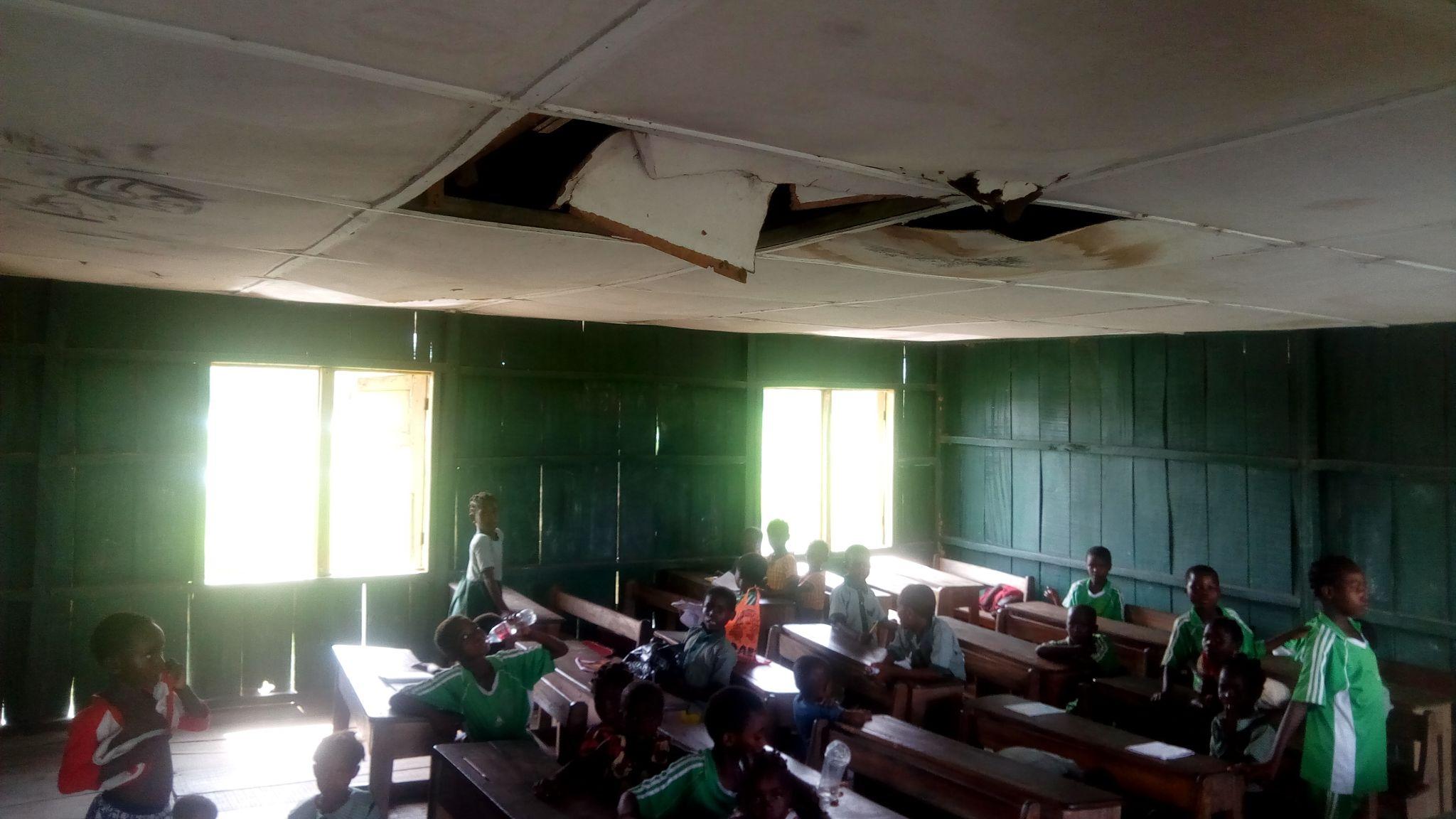
On a bright Friday afternoon, WITHIN NIGERIA reporter visited Molutehin, Ilowo, Ogungbeje and other neighbouring river bank communities in the Ilaje area of Ondo State. These areas being an oil-producing community houses several equipment owned by oil companies for their oil exploration.
But despite the presence of the oil companies and their activities, education in these communities continues to suffer more neglect.
Dilapidated School
The reporter was taken round the vicinity of the Molutehin community college which was surrounded by bushes and broken wooden bridges. Without the help of a signboard and the voice of students, one would have mistaken the school building for an outside-town poultry coupled with its location- inside the bush.
“Education is not as important as riches.” This was an inscription boldly written on the wall at the staff room of Molutehin Comprehensive College, this reporter can say that it meant more than just an ordinary statement- an interpretation that little value is placed on Education.
The students need canoes during the rainy season to transport themselves to school, if not, they would sit at home. The reporter noticed that the wooden bridges were all broken and could injure anyone not careful while walking on it.
Molutehin Comprehensive College was established in 1980 and it is the only secondary school that serves other neighbouring communities while others travel on water to far away distances. Bushy paths, uncompleted wooden buildings and broken wooden bridges are all what you would see while taking a walk to this secondary school in Ilaje community.
Reverend Pajesi, an elder in Molutehin and the Deputy Community Leader, recounted the poor conditions of the only comprehensive college and primary school in the community despite being an oil-producing community.
He explained how the community has been managing the school in poor condition and dealing with insufficient teachers, stating that the community took it upon itself to pay teachers since help was not coming from the government nor the oil companies and the students have to get educated.
This reporter visited the science laboratory halls of the school and both the physical and internal structures were all in a bad condition coupled with inadequate equipment. Some of the laboratories had bad roofing which harboured insects and reptiles.
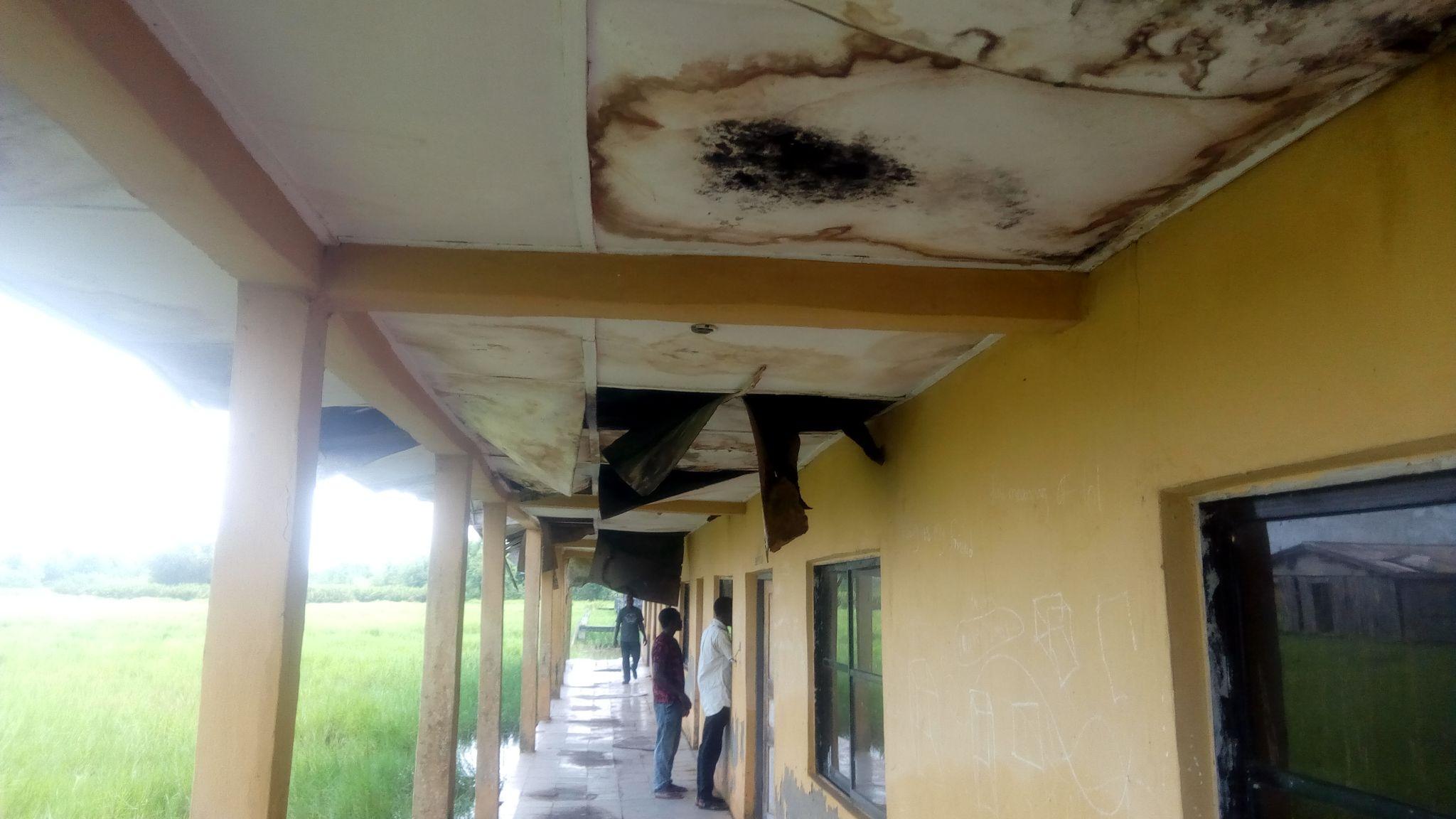
One of the teachers who volunteered to take WITHIN NIGERIA reporter round the laboratories said the students cannot make use of the facilities because it will endanger their lives and there is no equipment to carry out any scientific experiments.
“Since there are no equipment in the laboratories, we put them under lock till help will come to salvage the situation,” the teacher said.
Pajesi stated that the original structure of the Molutehin Comprehensive College has been abandoned by the Niger Delta Development Commission (NDDC) for several years. The abandoned school building is behind the current structure that houses the college, but it is covered with bush.
The residents of the community said that the building has been abandoned for several years and it was initiated by NDDC.
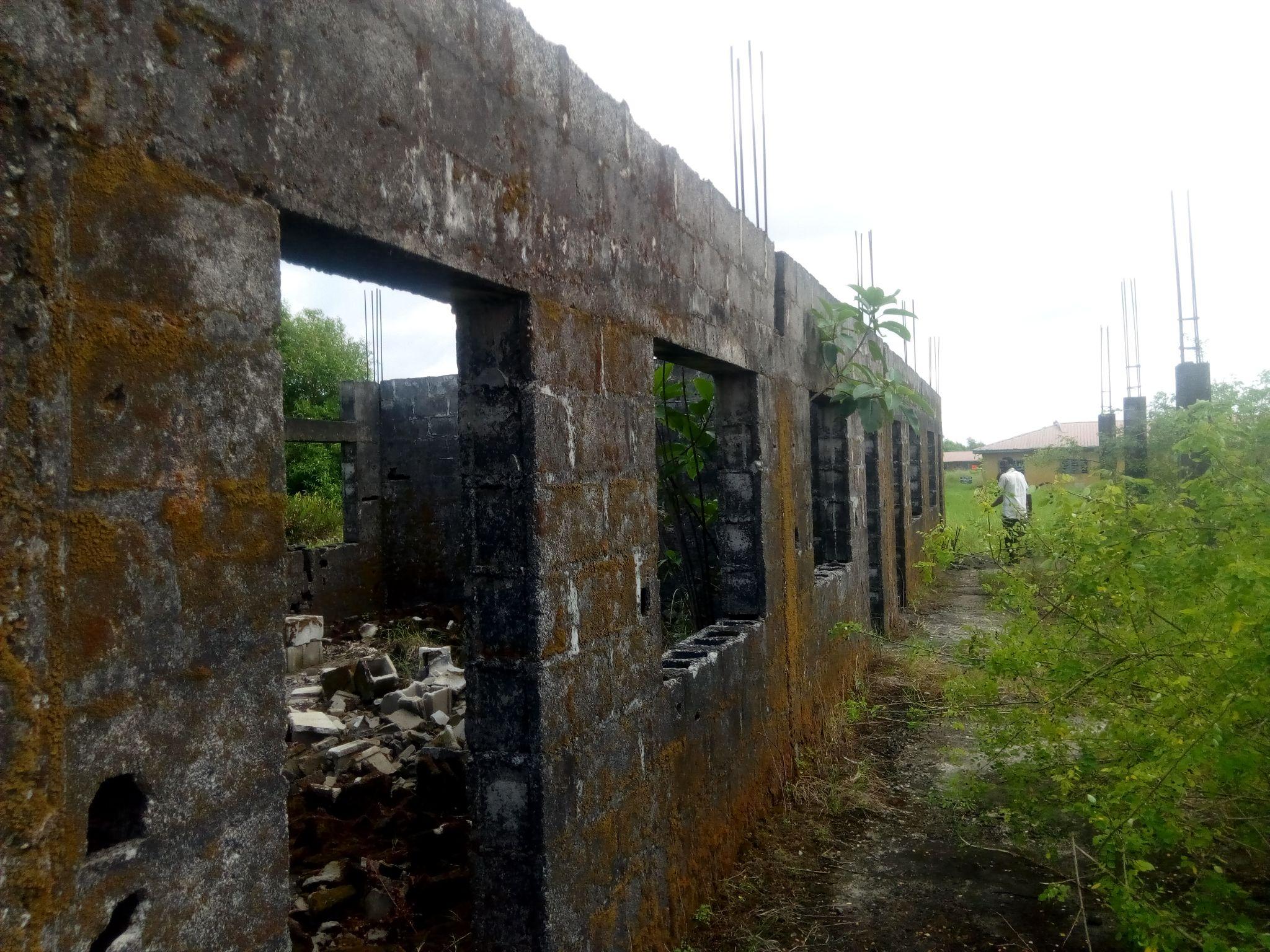
At Molutehin Comprehensive College, the classrooms are in poor condition with leaking and damaged roofs, insufficient staff and inadequate learning materials for students where most of the classes were abandoned with neither teaching board nor chairs.
“There is primary and secondary school but if you get there you will feel sorry for them. Everything is destroyed, including the crane (wooden bridge) and there is no repair. We have no teachers; even the corps members posted to this community did not come, most of them ran away,” reverend Pajesi lamented.
“The corps members are suffering, with no water and other basic amenities, not even teaching equipment. They promised us scholarships but nothing is coming forth. Until our children graduate before they even manage to pay one or two,” He added.
For Prince Adekanmi Eyinbo, an elder in the community, he lamented the shortage of teachers.
He said “the community has to contribute to hire the services of teachers, either qualified or not, just to teach the students and they pay them at the end of every month.”
Prince Adekanmi who is also the community secretary lamented how oil spillage has also tampered with the movement of children to and fro school.
Teachers, Parents In Pain
Ogungbeje community is also located at the riverbank of the Ilaje area where fishing is their main occupation. WITHIN NIGERIA observed a more dilapidated structure of their only community primary school.
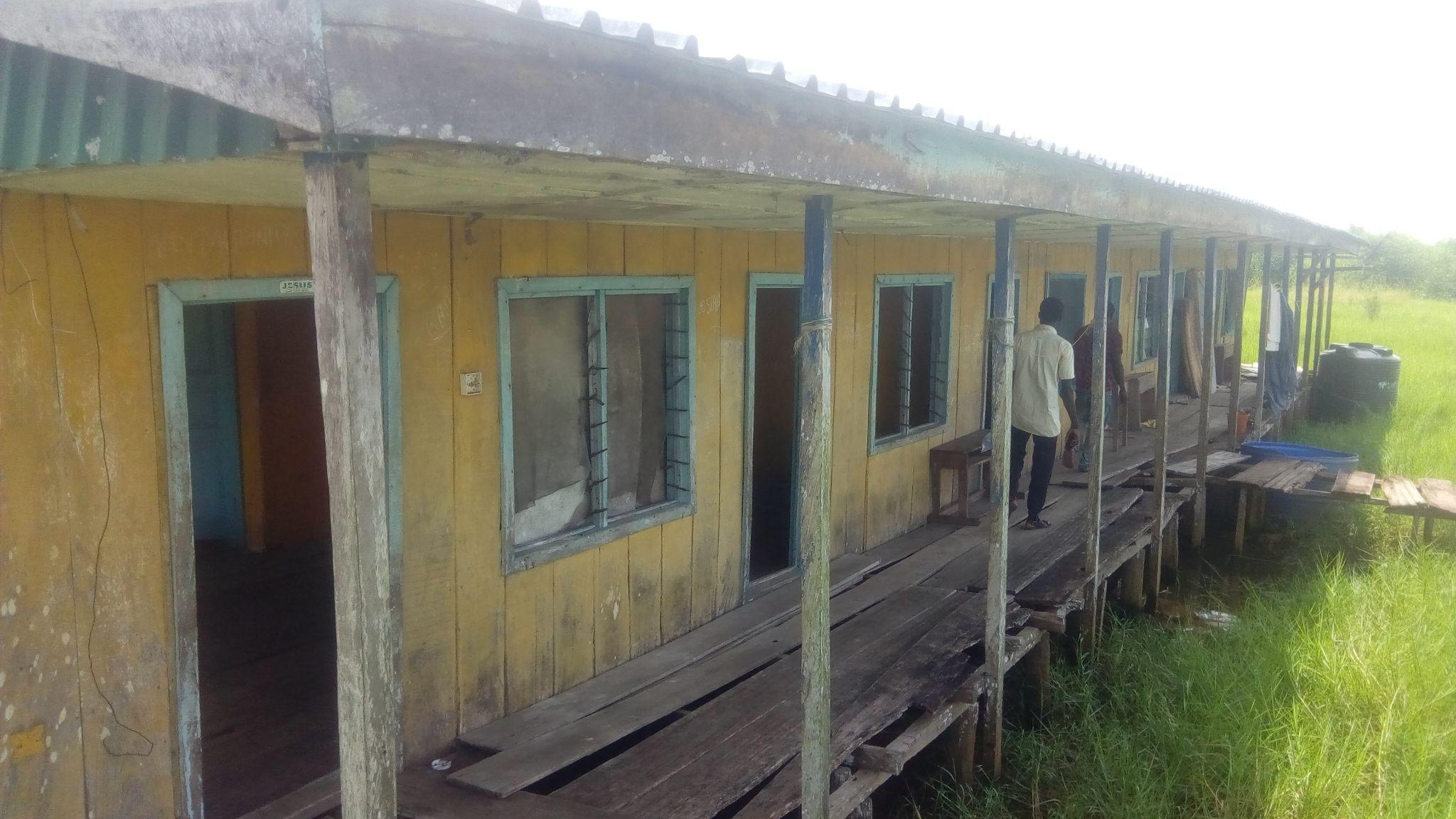
Mr. Ayenuro Kehinde, a teacher at the community primary school in Ogungbeje, narrated how he had been coping with the bad situation of the school. While lamenting the inadequate facilities in the primary school, he also stated that the children are also falling sick without First Aid treatment for them.
Mr. Ayenuro travels on water everyday from Igbokoda (one of the headquarters in ilaje community) where he lives. He experienced manageable basic amenities in Igbokoda.
“The children usually fall sick. The First Aid Box we have is incomplete; we take them to the Health Center which is a mile away from here. The community primary school has no library, no staff room and no toilets.”
Mr. Ayenuro said another major challenge is that the school has no access to water except they scoop from the river flowing underneath their wooden bridge.
At Ilowo, a neighbouring community, the students travel to nearby communities on canoe because there is no government school except private school, owned and managed by the First Baptist Church located close to the sea.
When the reporter visited the school, the students were no longer in the premises but it was discovered that some classes were merged to share same space. This means that Primary 3, 4 and 5 will receive lesson in the same class. This has been the situation they have been coping with in Ilowo community since there is no better situation for them.
Mr. Owopebijo Omonuwa, the chairman of the Parents Teachers Association (PTA) of the community primary school in Ogungbeje Community lamented the poor condition of their only primary school with bad structure and insufficient teachers, despite being the host community of oil activities.
The poor primary school which is located in a place called “Odu-Oyinbo” is shared by four other communities. Despite the poor condition, the community manages the school while some parents transport their children to another community.
“We have a government school and four communities are sharing that school. Even this crane (wooden bridge) usually wound our children, we kept managing. We have no teachers.”
“Our only school here was destroyed during the oil spillage crisis. Some people were taking their children to school at Igbokoda, Ayetoro and other neighbouring communities. We went to the Education board at Igbokoda but they did not attend to us. It was one of our sons here that we called to help build the school. No attention has been given to the school,” Mr.Owopebijo added.
This reporter visited the community primary school located in the corner of the community surrounded by flowing water that has invaded Ogungbeje. The primary school built with woods has four classrooms, with an abandoned- uncompleted classroom extension with two teachers handling the pupils.
This reporter also visited some of the oil producing neighbouring communities: Awoye, Mese, Odofado, Obenla, Ilepete, Oju-Imole, Odu-Oretan; the situation was not far from the poor structures and sufferings experienced by staff and students add well as the challenges faced by parents.
Out of school children
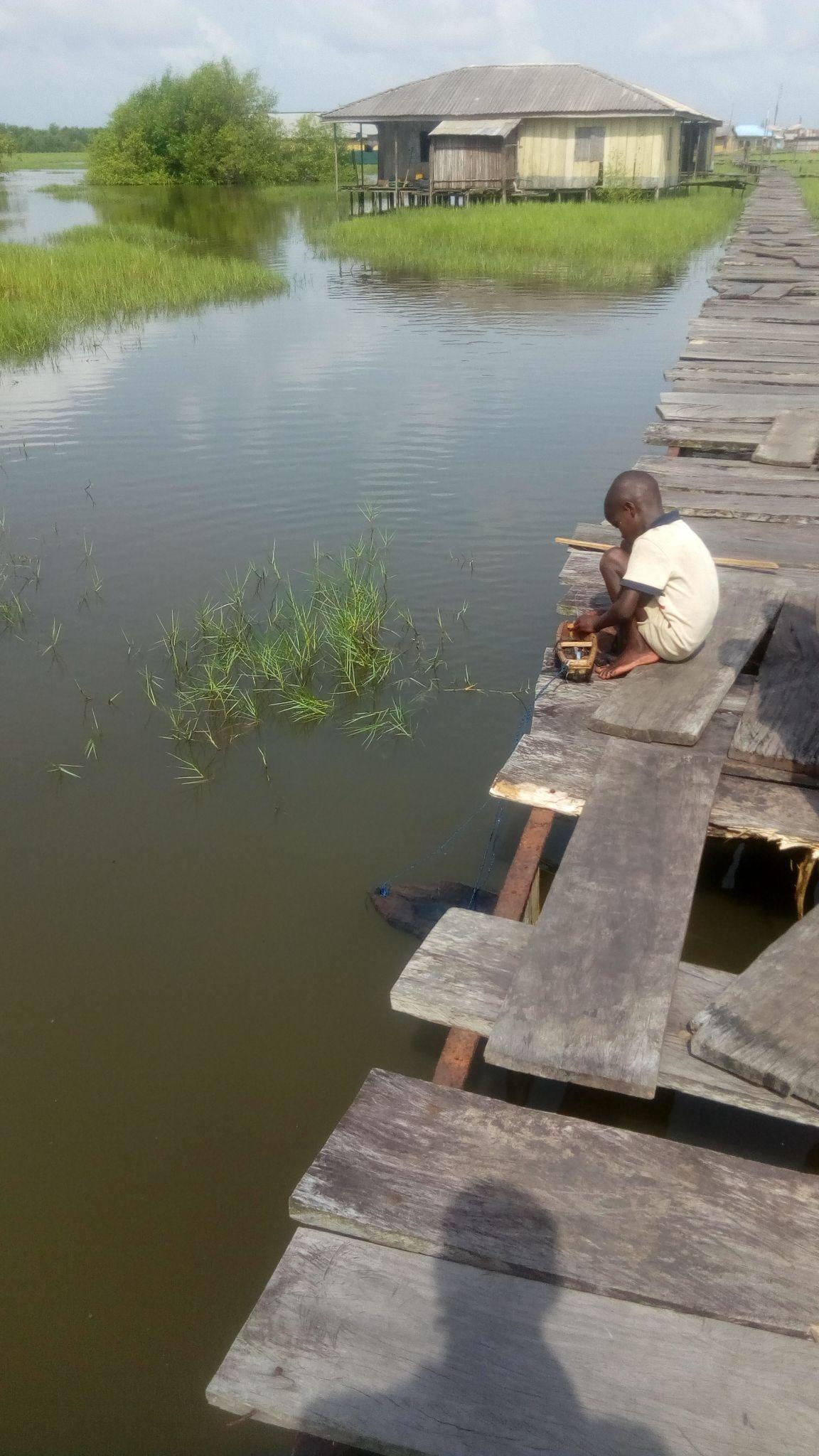
With the poor education in Ilaje communities, it contributes to the growing numbers of out-of-school children.
According to UNICEF, one in every five of the world’s out-of-school children is in Nigeria. Even though primary education is compulsory, over 10.5 million of the country’s children aged 5-14 years are not in school.
In the 2020 National Budget of the Federal Republic of Nigeria, a sum of N691.07 Billion was allocated for the Federal Ministry of Education. That constitutes about 6.7% allocation for Education out of the N10.33 Trillion total budget estimate.
In previous years, N620.5 Billion which was 7.05% of the total budget estimate was allocated for Education in 2019; N605.8Billion which was 7.04% of the total budget estimate was allocated for Education in 2018 while Education budget in 2017 got N550 Billion which was 7.4% of the total estimate.
Despite the regular budget for Education, several communities in Ilaje Local Government are without schools. These communities are surrounded with water and it will cost the residents to transport their children to another community before they would access Education.
Communities like Mese, Gbagira and Odofado in Ilaje Local Government of Ondo State are without schools. The children are being transported in a boat that serves as “school bus” to and fro a neighbouring community where they have access to primary school Education. Those with schools are left in ruins.
Aside from the danger in transporting the children to and fro everyday on water to a faraway school, the reality that these communities are the location from where several oil companies including Chevron, Exxon Mobil and others drill oil is sad.
Even the Ondo State government is not paying attention to these communities. Some of the mentioned areas are close to Obenla, the hometown of the current Deputy Governor of Ondo State, Hon. Lucky Aiyedatiwa.
WITHIN NIGERIA observed children roaming the seashore while they could have been in school. Some of the children were seen trying to hunt for fish while some hawks around the communities on water using a canoe as well as trekking to other communities on the wooden bridge.
Expert Speaks
Michael Abdullahi, an education development practitioner faulted the poor access to education and learning facilities noting that education is critical to human welfare and economic change.
He said “the best way to equip children for the future is to give them strong foundational and fundamental skills that will allow them to learn throughout their careers and their lives.”
Abdullahi further added that education in itself is first a fundamental human right which has greatly been neglected for several decades by relevant stakeholders across all boards.
While advising the government on the need to prioritize education, Abdullahi who lamented the poor said the government should build more partnerships with NGOs to provide affordable childcare training to mothers in urban slums to contribute not only to the economic stability of the household, but for better development for the next generation of children.
“Communities should be equipped and empowered with best global practices to aid teachers in delivering quality education and learning should be highly encouraged in our schools so as to allow students to explore and engage their minds in creative ways to become problem solvers.”
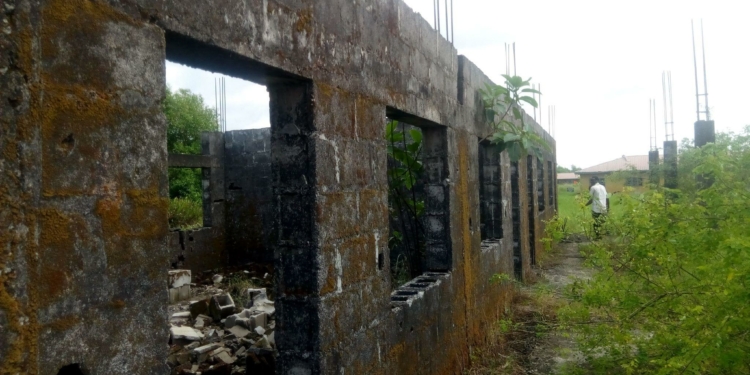
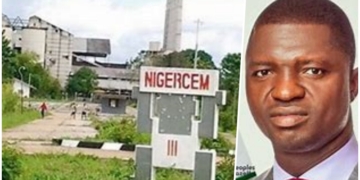


Discussion about this post